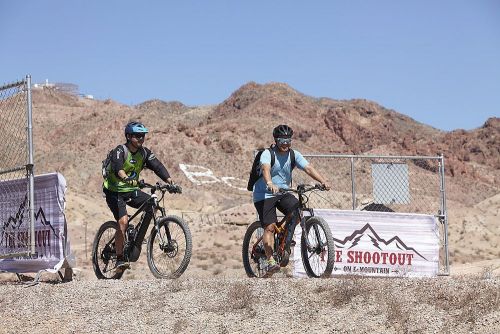WASHINGTON, D.C. (BRAIN) — The U.S. Department of Interior's policy proposal last year to regulate e-bikes as traditional bikes on non-motorized lands is now under standard review with a public comment period.
The policy proposal affects the National Park Service, Bureau of Land Management, U.S. Fish and Wildlife Service, and the Bureau of Reclamation. Each of their 60-day public comment periods (Regulation Identifier No. 1024-AE61) ends June 8. Agencies then will review all comments and decide if the proposal becomes federal regulation and/or if changes are needed, effective 30 days after being published in the Federal Register.
According to the NPS, the proposal will "define the term 'electric bicycle' and allow superintendents to provide for e-bike use in a similar manner to the current e-bike policy. ... The intent of this action is to address an emerging technology in a manner that accommodates visitors and increases opportunities for the public to recreate within and travel through the National Park System, while at the same time protecting the resources and values that draw millions of visitors each year."
"We're definitely tracking this," said Morgan Lommele, PeopleForBikes director for state and local policy. "The proposed rules are generally good."
Lommele said PeopleForBikes will have a page on its website with information about the Interior department's e-bike policy proposal, with descriptions, and action alerts. She said the page should be live by the end of the week and Monday at the latest.
If approved, the NPS, BLM, FSW and BR will regulate Class 1 and 3 e-bikes the same as traditional bikes, but each park superintendent would have final say-so as to where and if they can be used. Class 1 e-bikes are pedal-assist with the motor turning off at 20 mph. Class 3 are pedal-assist with the motor turning off at 28 mph. Class 2, throttle-assist with 20 mph maximum speed, would not be allowed on non-motorized trails.
"All signs point toward the general themes of removing e-bikes from the definitions of motor vehicles for each respective agency, and allowing local control to regulate e-bike access based on local conditions," Lommele said. "We plan to rally the industry, retailers, advocates, and riders around support for the regulations. But we'll ask for an allowance of Class 2 e-bikes."
The policy proposal in August allowed e-bikes access to non-motorized trails 30 days afterward and led to a lawsuit filed in December against the NPS. The Public Employees for Environmental Responsibility and a coalition of conservation groups are the primary plaintiffs.
The suit says Interior Secretary David Bernhardt and Deputy NPS Director P. Daniel Smith regularly met in private with an industry-dominated advisory committee at Interior headquarters and through conference calls. The suit says the meetings violate the Federal Advisory Committee Act, which requires transparency to prevent secret lobbying.
PEER senior counsel, Peter T. Jenkins, told BRAIN on Wednesday the group is pleased proper procedure is now being followed.
"But, the NPS is trying to close the barn door after the e-bikes already escaped, since it has already allowed e-bikes into the parks by the informal policy directive issued by Danny Smith back on August 30th of last year," Jenkins said. "The proposed regulation is the NPS trying to cover its tracks seven months later. If the NPS eventually adopts a final regulation, then that might change the legal landscape, but that likely will be many months away, if ever. Until then, our lawsuit against the informal, illegal, policy change will remain timely and important."
Jenkins said the lawsuit is moving forward, with the NPS administrative record due June 1 and legal briefing following.




